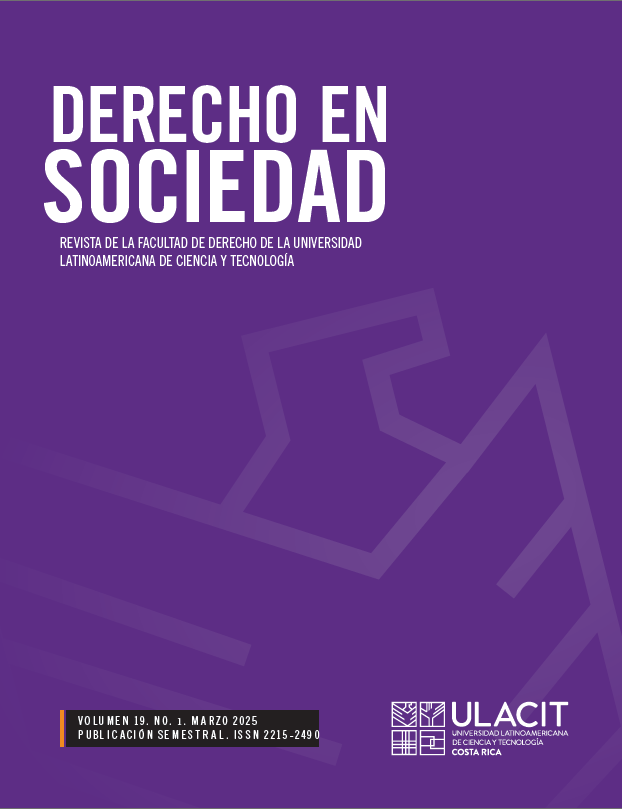
Publicado 2025-03-31
Palabras clave
- food supply chains ,
- globalization ,
- sustainability ,
- digitization ,
- impact of COVID-19
Cómo citar
Derechos de autor 2025 Derecho en Sociedad

Esta obra está bajo una licencia internacional Creative Commons Atribución-NoComercial-CompartirIgual 4.0.
Descargas
Altmetrics
Resumen
This conceptual article examines the effects of global suppliers on the global food supply chain, emphasizing the impact of globalization, COVID-19, digitization, sustainability, and geopolitical events. Drawing on 15 academic sources, the analysis is structured around six key research questions that explore the interdependence, disruptions, technological advances, and complexities associated with food supply chains. The findings highlight the ambivalent nature of globalization, which enhances efficiency and interconnectivity while increasing vulnerability to shocks. This review also highlights the role of pandemics in exposing systemic inequalities and inefficiencies, making the case for resilience and adaptability. The environmental impact of global food supply chains and trade-offs within sustainability are analyzed. In addition, technological innovations, particularly blockchain and IoT, are identified as transformative tools for improving traceability and transparency in the food supply chain industry. This review concludes by emphasizing the urgent need for strategic reforms to ensure stable, safe, and sustainable global food supply systems.
Referencias
- Aggarwal, S., Jeong, D., Kumar, N., Park, D. S., Robinson, J., & Spearot, A. (2020). Did COVID-19 market disruptions disrupt food security? Evidence from households in rural Liberia and Malawi (No. w27932). National Bureau of Economic Research. https://doi.org/10.3386/w27932
- Alabi, M. O., & Ngwenyama, O. (2023). Food security and disruptions of the global food supply chains during COVID-19: Building smarter food supply chains for the post-COVID-19 era. British Food Journal, 125(1), 167–185. https://doi.org/10.1108/BFJ-03-2021-0333
- Chen, S., Liu, X., Yan, J., Hu, G., & Shi, Y. (2020). Processes, benefits, and challenges for adoption of blockchain technologies in food supply chains: A thematic analysis. Information Systems and e-Business Management, 19(3), 909–935. https://doi.org/10.1007/s10257-020-00467-3
- Dekonink, C., & Toyama, L. (2022, September). Environmental impacts along food supply chains. OECD. https://www.oecd.org/en/publications/environmental-impacts-along-food
- Government of Canada. (2024, November 6). Marché agroalimentaire au Costa Rica. AMC. https://www.deleguescommerciaux.gc.ca/costa-rica/market-reports-etudes-de-marches/0007710.aspx?lang=fra
- Kamilaris, A., Fonts, A., & Prenafeta-Boldύ, F. X. (2019). The rise of blockchain technology in agriculture and food supply chains. Trends in Food Science & Technology, 91, 640–652. https://doi.org/10.1016/j.tifs.2019.07.034
- Krupitzer, C., & Stein, A. (2023). Unleashing the potential of digitalization in the agri-food chain for integrated food systems. Annual Review of Food Science and Technology, 15(1), 307–328. https://doi.org/10.1146/annurev-food-012422-024649
- Mondal, S. (2024, September 22). Global food security demands sustainable food systems. Policy Circle.https://www.policycircle.org/society/food-security-sustainable-farms/
- Mousavijad, M. (2023). Planning models for a multi-product, multi-site reforestation value chain. Corpus ULaval. https://corpus.ulaval.ca/server/api/core/bitstreams/515bf0d3-575d-464e-8f55-56a05fc43220/content
- Naz, F., & Kear, M. (2022). Impact of Ukraine War on global energy and food supply chains: A case study of South Asia. Strategic Studies, 42(2), 38–53. https://www.jstor.org/stable/48732349
- Scoppolla, M. (2021, July). Globalisation in agriculture and food: The role of multinational enterprises. ResearchGate. https://www.researchgate.net/publication/353613687
- Stead, V., & Hinkson, M. (Eds.). (2022). Beyond global food supply chains: Crisis, disruption, regeneration. Springer. https://doi.org/10.1007/978-981-19-3155-0
- Stranieri, S., Riccardi, F., Meuwissen, M. P., & Soregaroli, C. (2020). Exploring the impact of blockchain on the performance of agri-food supply chains. Food Control, 119, 107495. https://doi.org/10.1016/j.foodcont.2020.107495
- Trésor-Eco. (2015, November). N° 158 - La spécialisation industrielle de sept grands pays avancés: Quelle évolution depuis les années 1990? https://www.tresor.economie.gouv.fr/Articles/69fb7b01-0e5b-4d04-ab16-62bf6c1d018c/files/c50b45cb-0fd9-41ea-9c70-1df2362160a8
- Wang, G., Wang, Y., Li, S., Yi, Y., Li, C., & Shin, C. (2024, September 14). Sustainability in global agri-food supply chains: Insights from a comprehensive literature review and the ABCDE framework. MDPI Foods.https://www.mdpi.com/2304-8158/13/18/2914
- World Economic Forum. (2022, July). The war in Ukraine is pushing countries short on food to famine. World Economic Forum. https://www.weforum.org/stories/2022/06/war-ukraine-global-food-insecurity-rising/

